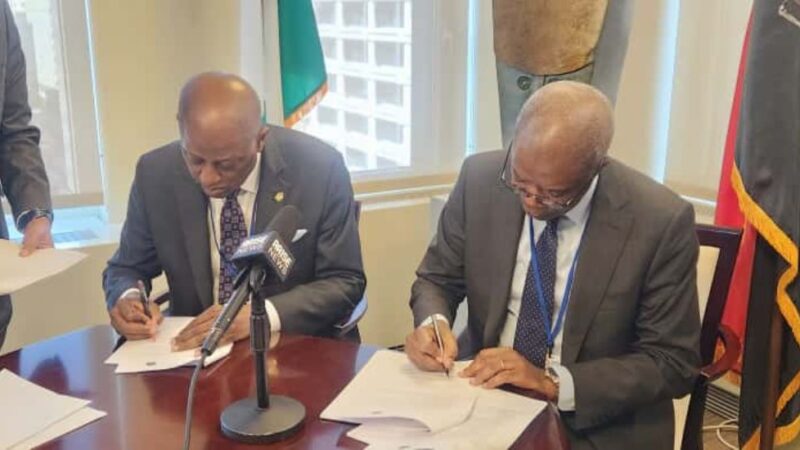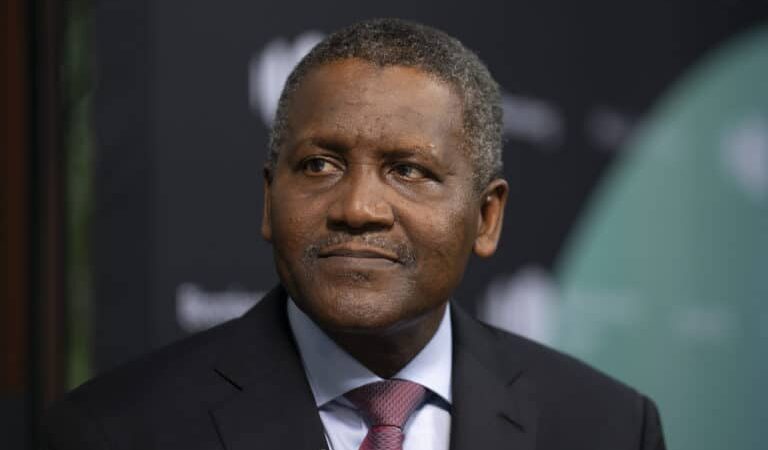Customs boss advocates investment-driven border security

The Comptroller-General of Customs, Bashir Adewale Adeniyi, has urged a paradigm shift in the government’s approach to border management, calling for a deliberate effort to transform border communities from neglected zones into centres of opportunity.
According to him, viewing these communities as partners to be invested in rather than problems to be managed would deliver far greater national security and economic dividends.
“We need to stop treating border communities like problems to be managed and start treating them like partners to be invested in. Every young person that we employ in a legitimate venture is someone we have kept out of the reach of traffickers. Prevention is cheaper than enforcement, and it is more humane.”
Adeniyi said this in a statement issued on Friday during the Customs Officers’ Wives Association Sustainability and Green Borders Summit held in Abuja.
He noted that genuine empowerment, through eco-enterprises, youth employment, and targeted infrastructure, offers a sustainable alternative to the cycle of poverty, smuggling, and insecurity often associated with border regions.
The Customs boss also called for massive and direct investment in Nigeria’s border communities to promote sustainability and curb cross-border crimes, saying “talking about green borders” must now give way to action and funding that reaches people on the ground.
He noted that transforming Nigeria’s frontier communities required more than policy rhetoric and workshops but real financial commitment to empower women, youth, and small eco-enterprises.
“Let me be direct about what we need to do, and there are three things. First, we need to move from talking about green borders to actually building them. That means funding, heavy funding, not promises, not committees, not endless panel discussions. We need money that can reach women and young people on the ground, the ones doing the actual work.
“We need to stop treating border communities like problems to be managed and start treating them like partners to be invested in. They hold the key to a sustainable and secure border economy,” the statement read.
Adeniyi, who also chairs the World Customs Organisation Council, has repeatedly urged Nigeria and its partners to prioritise eco-friendly border management, describing it as central to both national security and economic development.
He added that the Nigeria Customs Service would continue to align its modernisation agenda with global sustainability goals, ensuring that trade facilitation efforts contribute to environmental protection and local empowerment.
“Sustainability is now part of border security. When we empower communities to thrive legally and sustainably, we make smuggling unattractive,” he said.
He unveiled plans to finance a national Green Border Project, aimed at promoting sustainability, empowering border communities, and reducing the impact of climate change across Nigeria’s frontiers.
“When you drive through our border towns, what do you see? Mountains of waste, young people with no opportunities, communities left behind,” he lamented. “Smugglers find recruits not because people are criminals, but because survival looks different when you live on the edge of environmental collapse.”
He announced that Green Customs had become a core component of the service’s strategic plan, with specific programmes to support women-led recycling and green enterprise initiatives in border areas.
“Green Customs is not a side project; it’s a priority,” he said. “We’ll partner with COWA to fund sustainability projects that empower women and youth in our border communities. The world is watching, and we intend to show leadership.”
Adeniyi further called for heavy investment in border development, saying prevention of smuggling through eco-enterprise was more effective than enforcement through checkpoints.
“Every eco-enterprise we support is a barrier to smuggling that doesn’t require confrontation,” he noted.
Earlier in her address, COWA President, Kikelomo Adeniyi, unveiled the COWA Sustainability and Innovation Centre, a flagship project under the Green Borders Initiative, designed to train and empower border women and youth in solar energy, waste recycling, and green enterprise.
She said the summit, themed ‘Greening Borders, Empowering Lives: Women and Youth as Champions of Sustainable Trade’, was a call to conscience and a movement for transformation.
“Our border communities, from Jibia in Katsina to Idiroko in Ogun, are the forgotten corridors of our development agenda,” Mrs. Adeniyi said. “Over 70 per cent of these communities lack clean water, renewable energy, or sanitation facilities.”
She added that the new centre, to be established in Abuja, would serve as a living hub for sustainability thinking, connecting trade facilitation with climate resilience.
The centre will host a Green Skills Academy, an Innovation and Research Lab, a Policy and Leadership Institute, and a Green Enterprise Hub for small-scale recycling, eco-fashion, and renewable energy projects.
“This is not just about planting trees,” she explained. “It’s about planting hope, growing opportunities, and cultivating responsibility.”
The initiative comes amid worsening conditions in Nigeria’s border regions.
Recent findings from a nationwide Green Barrack Audit by COWA show that seven in ten border communities lack access to clean water and electricity, while deforestation and illegal trade continue to undermine national security.
According to the National Bureau of Statistics, Nigeria loses an estimated 350,000 hectares of forest annually, fuelling desertification and displacing thousands of people in northern border zones.
Similarly, the UNDP estimates that women and youth make up over 65 per cent of the population in these areas, yet remain largely excluded from economic opportunities.
COWA’s Green Borders Initiative aims to reverse these trends by promoting green jobs, circular economy enterprises, and cross-border environmental cooperation.
The COWA president also invited the Federal Ministries of Environment, Women Affairs, Trade, and Investment, as well as corporate Nigeria and international donors, to integrate the initiative into their sustainability frameworks.
“Sustainability is good business. Companies investing in green growth experience stronger community trust, higher brand equity, and long-term competitiveness.”
She revealed that the association would soon embark on a nationwide partnership drive to mobilise funds and expertise for the project, adding that Nigeria’s private sector could play a catalytic role in making the initiative a reality.
“We will be knocking on the doors of corporate Nigeria, international partners, and philanthropies. Together, we can make sustainability not just a theme, but a national development imperative,” the statement concluded.







